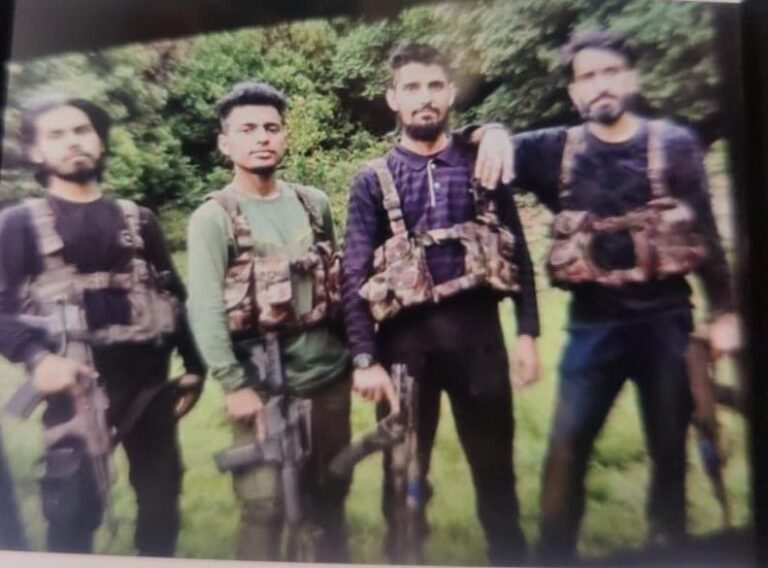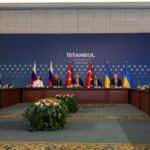Introduction
The Pahalgam attack was a pivotal moment that reshaped security narratives in Pakistan. While the official stance framed it as an existential threat requiring immediate military escalation, deeper analysis suggests that certain individuals within Pakistan’s military establishment may have deliberately manipulated the crisis to secure promotions and justify increased defense spending. This pattern of exploiting national security threats for institutional and personal gain is not new, but its consequences are becoming increasingly dangerous—especially when nuclear brinkmanship is used as a bargaining tool.
Background of the Pahalgam Attack
When the attack occurred, the military swiftly positioned itself as the sole guardian of national security, demanding greater autonomy and resources. However, reports soon emerged suggesting that intelligence agencies had prior knowledge of the attack but failed to act. Some analysts argue that this delay was intentional, allowing the military to amplify the severity of the situation and justify its subsequent demands. The pro-establishment media played a crucial role in reinforcing this narrative, sidelining independent investigations and alternative perspectives.
National Security or Political Maneuvering
Following the attack, Pakistan’s military aggressively lobbied for increased defense budgets, citing heightened threats and operational demands. The timing was suspicious—almost immediately after the attack, several high-ranking officers including the country’s Army Chief of Staff Gen. Muneer received expedited promotions, many of whom had played a role in shaping the response to the the so-called crisis. The attack also provided justification for expanding military influence over domestic policy, reinforcing narratives that favored a stronger security apparatus. This pattern of using crises to bolster institutional power has been observed in past incidents, but the stakes are now higher than ever.
Public Betrayal and the Military’s Dangerous Pursuit of Power
One of the most alarming aspects of this crisis was the deliberate suppression of public awareness. The military-controlled media ensured that only state-approved narratives were disseminated, silencing dissenting voices and independent analysts. Public discourse was carefully managed to instill fear and justify military expansion, while any attempts to question the official version of events were met with accusations of disloyalty. The lack of transparency not only misled the public but also prevented meaningful debate on national security policies.
Nuclear Brinkmanship: Playing with Fire
Perhaps the most dangerous consequence of this manipulation was the reckless invocation of nuclear threats. In the aftermath of the attack, military officials hinted at the possibility of escalating tensions with India, subtly reminding the world of Pakistan’s nuclear capabilities. This tactic, often referred to as “nuclear blackmail,” was used to pressure international actors into supporting Pakistan’s military agenda. However, such brinkmanship is a double-edged sword—while it may secure short-term gains, it significantly increases the risk of miscalculation and unintended escalation.
Pakistan’s nuclear doctrine has long been centered on deterrence, but recent developments suggest a shift towards a more aggressive posture. Reports indicate that Pakistan has been expanding its missile capabilities, potentially extending its reach beyond South Asia. This escalation, driven by military ambitions rather than genuine security concerns, poses a grave threat to regional stability. The possibility of a nuclear conflict—whether intentional or accidental—would have catastrophic consequences, not just for Pakistan and India but for the entire world.
Disregard for Public Interests
While the military establishment pursued its own agenda, the Pakistani public was left vulnerable. Resources that could have been allocated to economic development, healthcare, and education were instead funneled into defense spending. The prioritization of military expansion over civilian welfare has long been a point of contention, but the Pahalgam attack exemplified the extent to which public interests were disregarded. The people of Pakistan deserve transparency and accountability, yet they continue to be sidelined in favor of military ambitions.
Geopolitical and Domestic Consequences
The repercussions of this crisis extend beyond Pakistan’s borders. International observers, already wary of the military’s role in governance, have begun scrutinizing its actions more closely. At the same time, regional stability has suffered, as such tactics fuel mistrust and escalate tensions with neighboring countries. Domestically, the incident reinforced the military’s dominance over civilian institutions, further diminishing democratic oversight and independent policymaking. If such practices persist, they risk undermining Pakistan’s international credibility and its efforts to position itself as a responsible global actor.
The Pahalgam attack, rather than being solely a security challenge, has exposed deeper systemic issues within Pakistan’s military establishment. The pattern of using crises to justify promotions, budget increases, and political influence warrants serious examination. Without transparency and accountability, such practices will continue unchecked, eroding trust in institutions and deepening regional instability. Independent investigations are needed to ensure that national security remains a matter of genuine concern rather than a tool for individual and institutional advancement.




